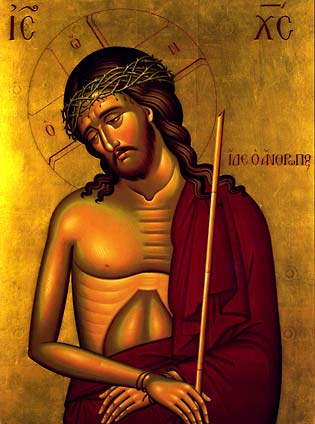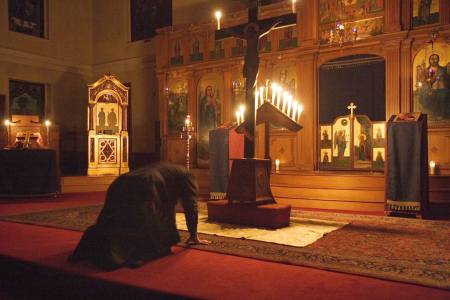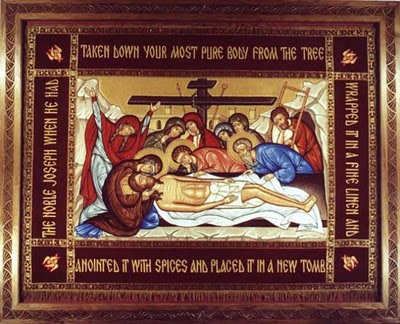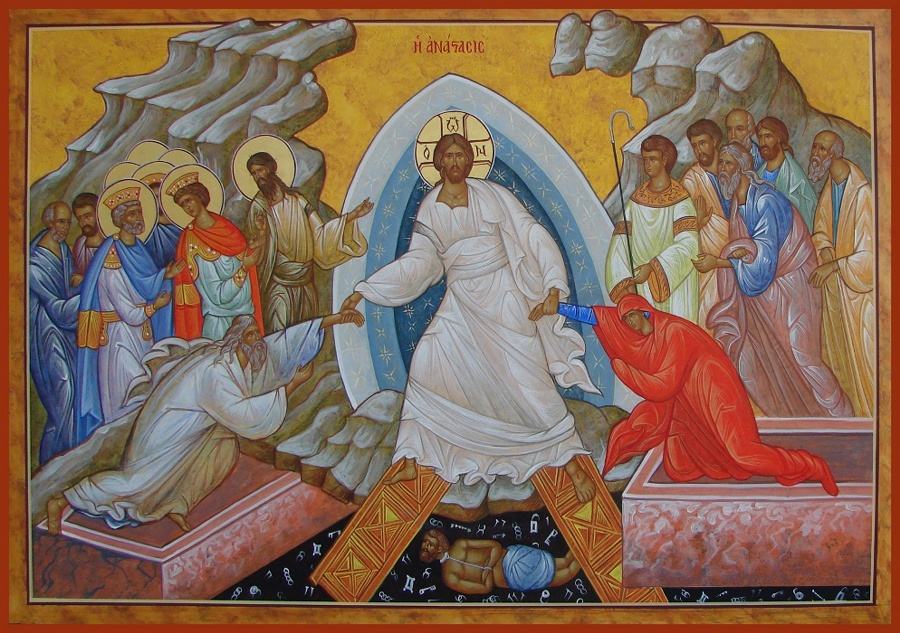
Many Protestants know of Isaiah 53 which predicted Christ’s suffering, but few know of the Wisdom of Solomon which predicted the persecution of Christ by ungodly men.
One unexpected blessing of becoming Orthodox has been a larger Old Testament. Where many Protestant bibles omit the Deuterocanonical books (often referred to as “Apocrypha”), Orthodox bibles include them. The reason for the inclusion is because the Old Testament used by the Apostles was the Septuagint which included the Wisdom of Solomon. The Septuagint is a Greek translation of the Jewish bible that also included books written from the fourth century to the first century before Christ.
It may surprise some readers that the King James Version originally contained the “Aprocrypha,” and even has the Wisdom of Solomon. Reformed Christians may be surprised that the Geneva Bible likewise contained a section, “the Apocrypha.” Originally, Protestants accepted the “Apocrypha.” This reflected their respect for historic listing of biblical books. It would not be until the 1700s and 1800s that there would take place the large scale exclusion of the Deuterocanonical books leading to the Protestants’ loss.
Christ the Son of God
The second chapter of Wisdom of Solomon describes the sufferings of no ordinary man, but that of the Christ, the Son of God. Augustine of Hippo in City of God Book 2 Chapter 20 (NPNF vol. 2 p. 357) saw this passage as a prophecy of Christ’s Passion. These verses describe the inner thoughts or dialogue among the ungodly about the righteous man. Their indifference to God becomes manifest in their hatred to God’s Son.
He professes to have knowledge of God,
And calls himself a child of the Lord.
He became to us a reproof of our thoughts;
The very sight of him is a burden to us,
Because his manner of life is unlike that of others,
And his ways are strange.
We are considered by him as something base,
And he avoids our ways as unclean;
He calls the last end of the righteous happy,
And boasts that God is his father.
(Wisdom of Solomon 2:13-16; RSV)
The Christ to Suffer
Where Isaiah 53 focuses on Christ’s sufferings, Wisdom of Solomon 2 highlights the inner thoughts of Christ’s enemies.
Let us see if his words are true,
And let us put these last things to the test
at the end of his life.
For if the righteous man is a son of God, He will help him.
And deliver him from the hand of those who oppose him.
(Wisdom of Solomon 2:17-18)
Let us test him with insult and torture
That we may know his gentleness
And test his patient endurance.
Let us condemn him to a shameful death,
For there shall be a visitation because of him.
(Wisdom of Solomon 2:19-20; RSV)
On Holy Thursday evening, the Orthodox Church remembers the horrific events of Christ’s last hours in the service known as the “Twelve Gospels.” During this service passages from all four Gospels are read commemorating Christ’s saving death. Knowing Old Testament passages like Isaiah 53 and Wisdom of Solomon 2 can help us better understand Christ’s suffering.

Holy Thursday Service at St. Mary Orthodox Church in Cambridge, MA.
Scripture Fulfilled
It is possible that Jesus had Isaiah 53 and Wisdom of Solomon 2 in mind when he informed his disciples of his imminent death. We read in Mark’s Gospel:
And He began to teach them that the Son of Man must suffer many things, and be rejected by the elders and chief priests and scribes, and be killed, and after three days rise again. (Mark 8:31-32)
Later we read in Mark 15:29-31 of the chief priests and scribes making fun of Christ:
And those who passed by blasphemed Him, wagging their heads and saying, “Aha! You who destroy the temple and build it in three days, save Yourself, and come down from the cross!”
Likewise the chief priests also, mocking among themselves with the scribes, said, “He saved others; Himself He cannot save. Let the Christ, the King of Israel, descend now from the cross, that we may see and believe.” (Mark 15:29-32; OSB)
The Good News
Behind the horrific indignities and torture inflicted on Jesus Christ is the mystery of God’s powerful and redemptive love. Apostle Paul explained in Romans:
But God demonstrates his love toward us, in that while we were still sinners, Christ died for us. Much more then, having now been justified by His blood, we shall be saved from wrath through Him. For if when we were enemies we were reconciled to God through the death of His Son, much more, having been reconciled, we shall be saved by His life. (Romans 5:8-10; OSB)
The phrase “by His life” points to Christ’s resurrection. Christ’s death on the Cross is followed by his resurrection. The two together comprise the Good News. Between Good Friday and Easter Sunday is Holy Saturday — a time of waiting. As we wait, let us meditate on God’s tender mercies for us sinners.





Recent Comments